TABLE OF CONTENTS:
- What is Mushroom Tea?
- How Medicinal Mushrooms Work for Anxiety
- Best Mushrooms for Anxiety Relief
- How to Make Mushroom Tea for Anxiety
- Risks and Side Effects
- Recent Recipes
- Risks and Side Effects
Does Mushroom Tea Help with Anxiety? Exploring the Benefits, Risks, and FAQs
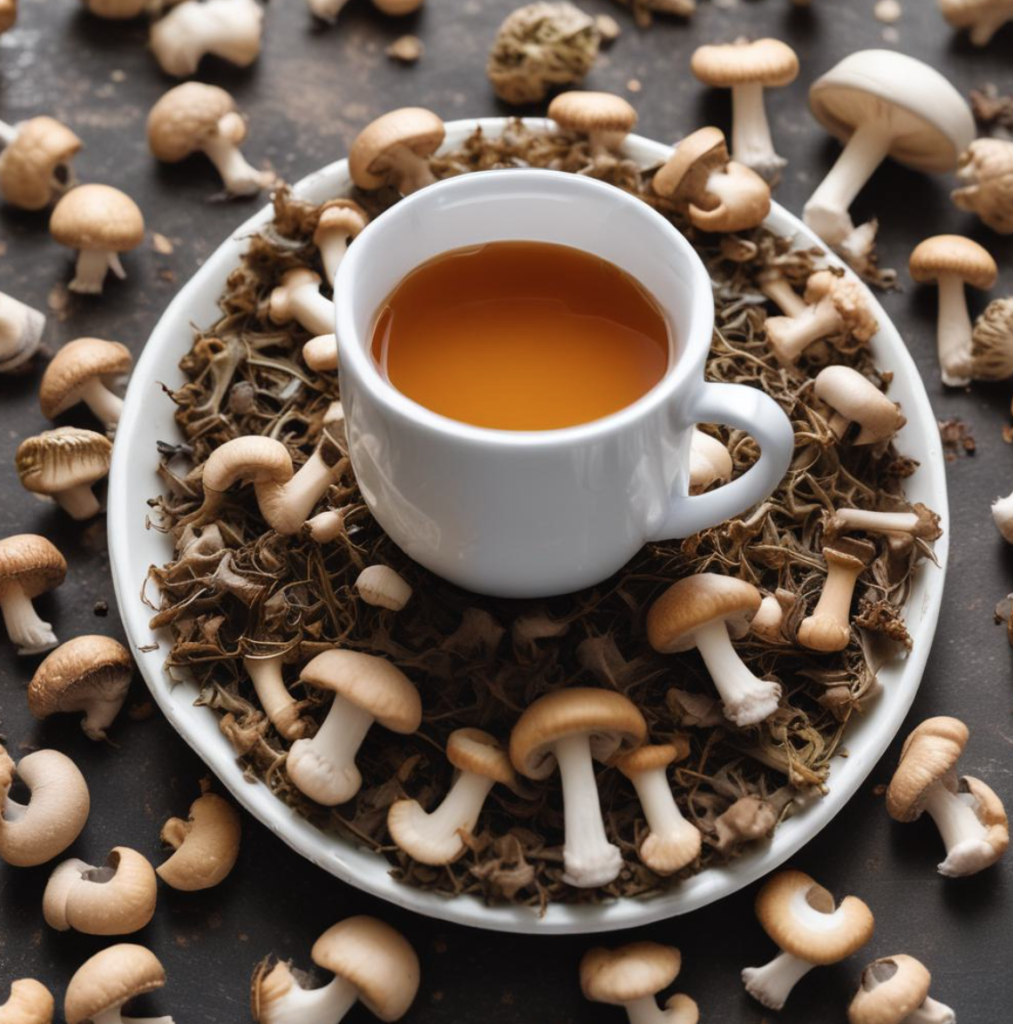
Anxiety is a common issue in today’s fast-paced world, leading many to seek natural remedies for relief. Among these, mushroom tea has gained attention for its potential calming effects. But can it truly help with anxiety? In this guide, we will explore how medicinal mushrooms like Reishi, Lion’s Mane, and even Psilocybin might aid in anxiety relief, and how you can incorporate these mushrooms into a daily tea routine.
What is Does Mushroom Tea Help with Anxiety ?
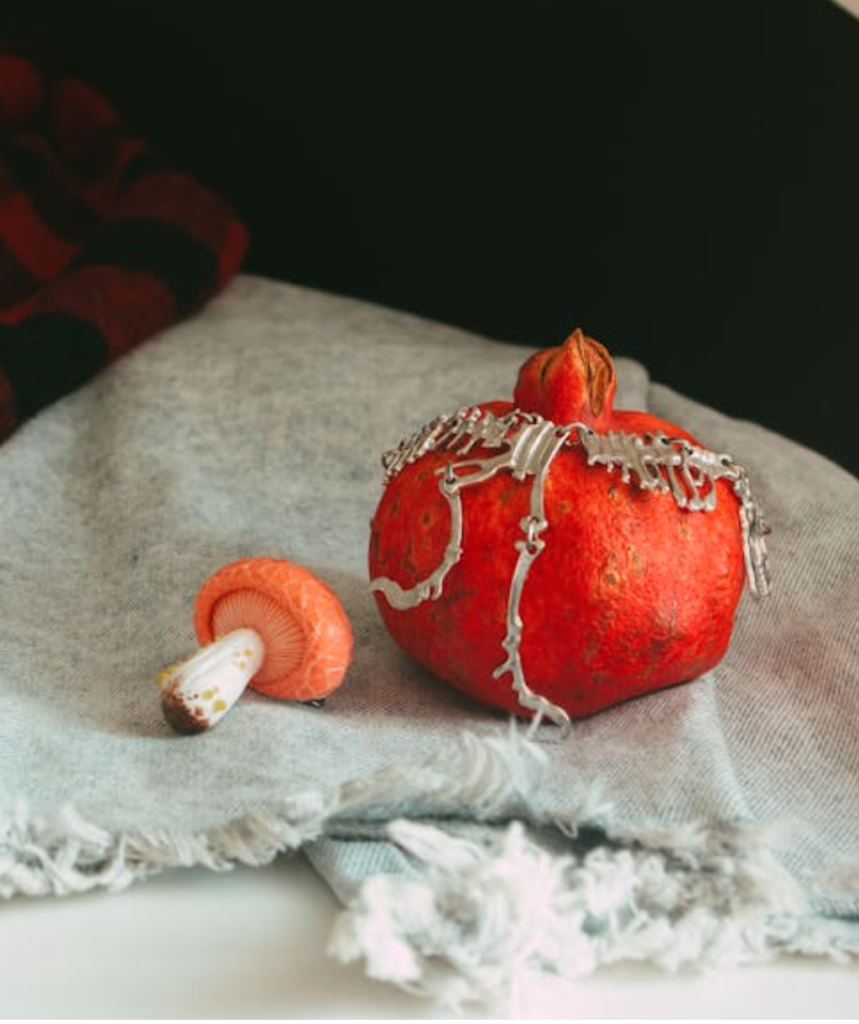
Mushroom tea is an herbal beverage made by brewing medicinal mushrooms, either dried or powdered, in hot water. Traditionally used in various forms of medicine, mushrooms like Reishi, Chaga, and Lion’s Mane have long been praised for their health benefits, including their ability to reduce stress and promote relaxation.
Many medicinal mushrooms contain adaptogenic properties, meaning they help the body adapt to stress and restore balance. As a result, mushroom tea can be an effective natural remedy for those looking to manage anxiety.
How Medicinal Mushrooms Work for Anxiety
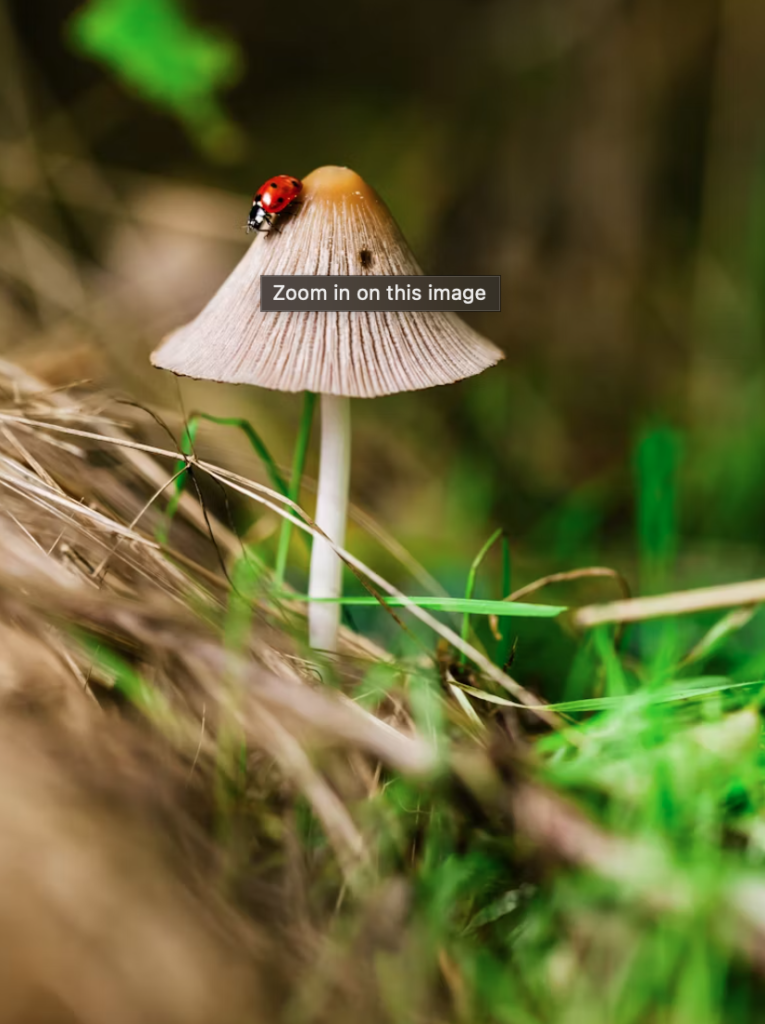
The medicinal mushrooms commonly used in tea are known for their adaptogenic and neuroprotective properties, making them particularly beneficial for managing anxiety and stress. Here’s a closer look at how specific mushrooms work:
1. Reishi
Reishi, often called the “mushroom of immortality,” is one of the most popular mushrooms for anxiety relief. It contains triterpenes, compounds known for their calming effects. Reishi tea is often used to balance cortisol levels, helping the body relax and cope with stress. This makes it ideal for those who experience chronic anxiety or struggle with insomnia.
2. Lion’s Mane
Lion’s Mane is best known for its neuroprotective qualities. It promotes the production of nerve growth factor (NGF), which is essential for brain health. Consuming Lion’s Mane tea regularly may help reduce anxiety by enhancing cognitive function and emotional stability. Many who drink Lion’s Mane tea report feeling more mentally clear and less anxious over time.
3. Chaga
Chaga, though more famous for its immune-boosting abilities, also aids in regulating stress hormones. It is packed with antioxidants that protect the brain from oxidative stress, a contributor to anxiety. Additionally, Chaga’s role in promoting gut health indirectly supports mental health, as gut health is closely linked to mood regulation.
4. Psilocybin Mushrooms
Perhaps the most controversial, Psilocybin mushrooms are used in controlled environments for their psychoactive properties. In smaller, controlled doses (known as microdosing), Psilocybin has shown promise in treating anxiety and depression. Psilocybin tea can provide emotional relief by helping individuals confront suppressed feelings and break free from negative thought patterns.
While Psilocybin is not legal in many regions, ongoing studies suggest that it could be a breakthrough treatment for anxiety, particularly for those with treatment-resistant anxiety.
For more information on how these mushrooms work, read this Best Mushrooms for Anxiety guide.
Best Mushrooms for Anxiety Relief
Mushrooms such as Reishi, Lion’s Mane, Chaga, and Psilocybin are often considered the best for managing anxiety. Let’s break down their unique properties and how they can be consumed as tea:
1. Reishi Mushroom Tea
Reishi is the go-to choice for those looking to reduce stress and induce relaxation. Its adaptogenic properties help regulate cortisol levels, making it especially effective for individuals suffering from chronic stress. Reishi tea can be consumed in the evening to improve sleep quality and combat anxiety.
2. Lion’s Mane Mushroom Tea
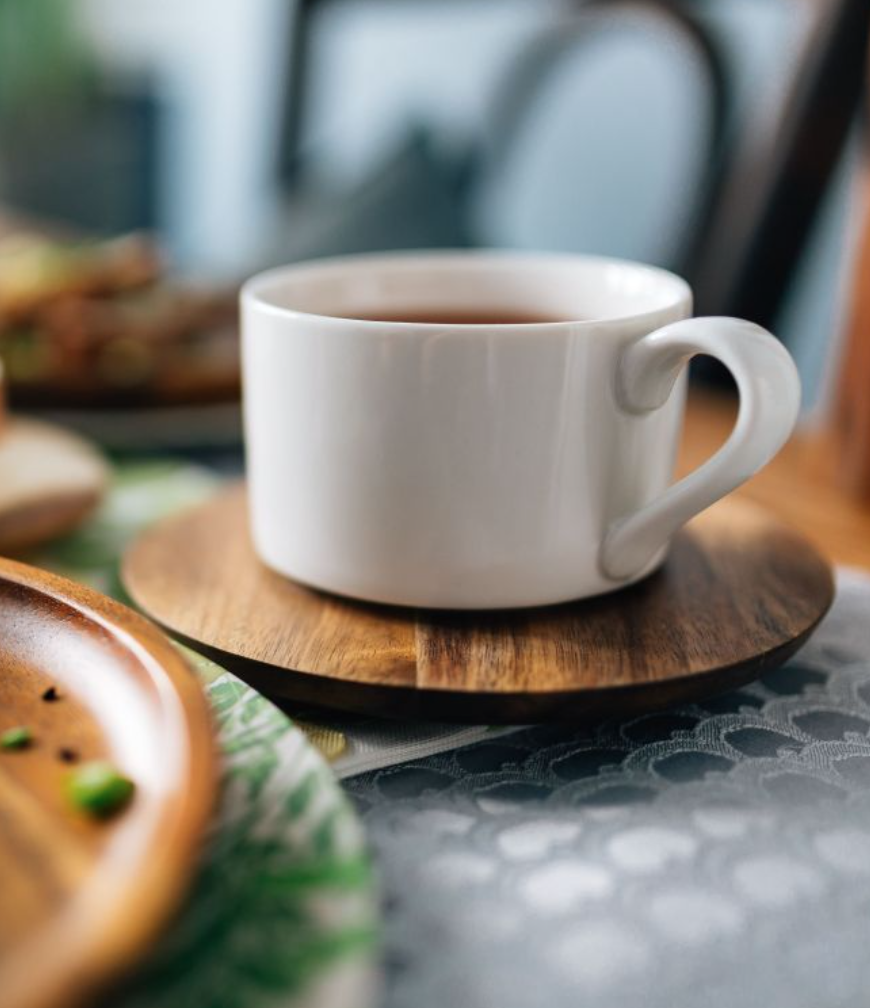
If you need a cognitive boost alongside anxiety relief, Lion’s Mane tea is an excellent option. Regular consumption has been linked to better mental clarity, focus, and emotional stability. Lion’s Mane also helps reduce brain fog and promote an overall sense of well-being.
3. Chaga Mushroom Tea
While Chaga is not traditionally considered an anti-anxiety mushroom, its ability to support gut health and reduce inflammation makes it valuable for mental health. Regular consumption of Chaga tea can balance stress hormones and improve overall well-being, making it a useful tool in managing anxiety.
4. Psilocybin Mushroom Tea
Psilocybin is typically used for microdosing, which can significantly reduce symptoms of anxiety and depression. Though more research is needed, Psilocybin tea offers potential relief for those who haven’t responded well to conventional treatments.
For more tips on how to brew these teas, refer to Best Mushrooms for Anxiety.
How to Make Mushroom Tea for Anxiety
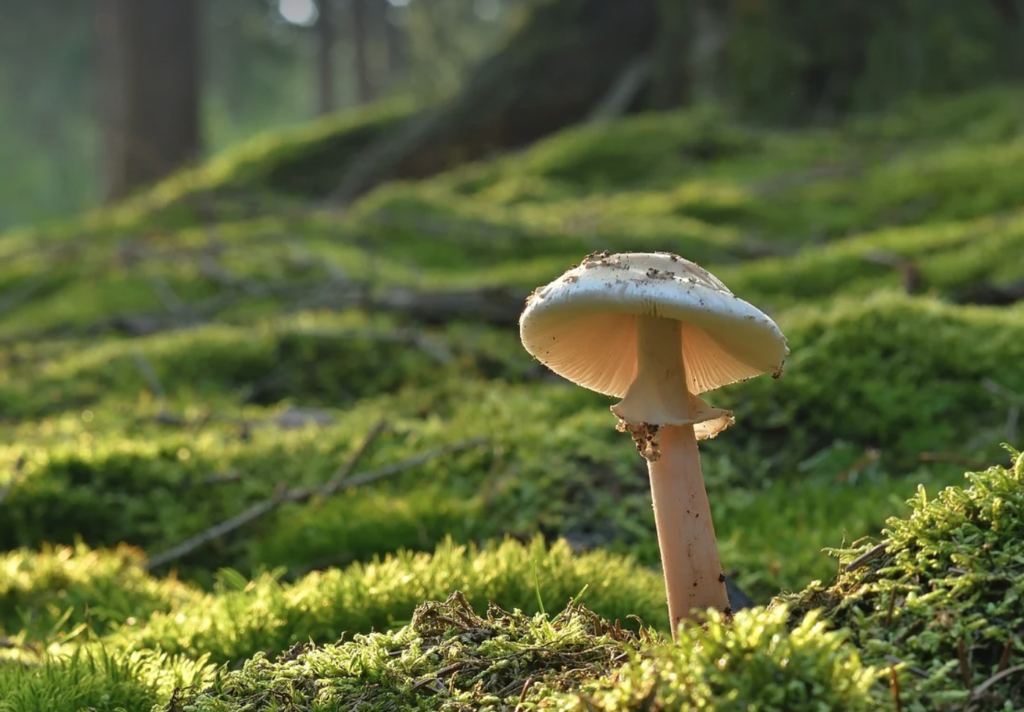
Making mushroom tea is a straightforward process. Here’s a simple recipe that can be customized based on the type of mushroom you’re using:
Ingredients:
- 1 cup of dried mushrooms (Reishi, Lion’s Mane, or Chaga)
- 2 cups of water
- Honey or lemon (optional for flavor)
Instructions:
- Prepare the Mushrooms: Break the mushrooms into smaller pieces or use a powdered form.
- Boil Water: Bring the water to a boil in a small pot.
- Simmer the Mushrooms: Add the mushrooms to the boiling water, reduce the heat, and let them simmer for 20-30 minutes to fully extract their beneficial compounds.
- Strain and Serve: After simmering, strain the tea and add honey or lemon to taste, if desired.
For a variation, combine Reishi and Lion’s Mane for a potent anti-anxiety tea. This tea can be consumed daily to help manage stress and anxiety naturally.
Risks and Side Effects
While mushroom tea offers many benefits, there are also some risks and potential side effects to be aware of, particularly with mushrooms like Psilocybin:
1. Psychoactive Effects (Psilocybin)
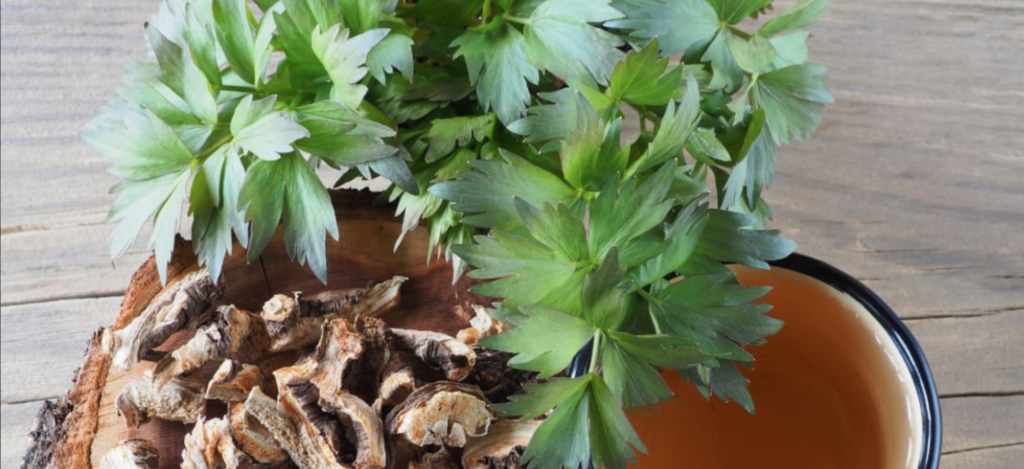
If you are considering Psilocybin tea for anxiety, it’s crucial to be mindful of its psychoactive properties. While microdosing has shown promise in reducing anxiety, higher doses can lead to hallucinations and intense emotional experiences. Always use Psilocybin under the guidance of a professional.
2. Gastrointestinal Discomfort
Mushrooms like Reishi and Chaga can cause mild stomach upset or digestive discomfort if consumed on an empty stomach. It is recommended to drink mushroom tea after meals or alongside food to avoid any digestive issues.
3. Allergic Reactions
As with any natural remedy, there is a risk of allergic reactions. If you have never consumed a particular mushroom before, start with a small amount to ensure you tolerate it well. Watch for signs of an allergic reaction such as itching, swelling, or stomach discomfort.
4. Pregnancy and Nursing
Due to limited research on the safety of medicinal mushrooms during pregnancy or breastfeeding, it is generally recommended that pregnant or nursing individuals avoid mushroom tea unless advised by a healthcare provider.
Recent Recipes
FAQs About Mushroom Tea and Anxiety
How long does it take for mushroom tea to reduce anxiety?
The calming effects of mushroom tea can be felt within 30 minutes to an hour after consumption, depending on the mushroom. For example, Reishi and Lion’s Mane have more subtle effects that accumulate over time with regular consumption.
Can I drink mushroom tea daily for anxiety?
Yes, mushrooms like Reishi, Lion’s Mane, and Chaga are safe for daily consumption. Regular use can help manage chronic stress and anxiety. If you are considering Psilocybin mushrooms, be cautious about dosage and consult with a healthcare professional.
Which mushrooms are best for long-term anxiety relief?
Reishi and Lion’s Mane are particularly effective for long-term anxiety relief. Reishi helps manage cortisol levels and reduce stress, while Lion’s Mane supports cognitive function and emotional balance.
Are there any side effects of drinking mushroom tea?
Common side effects include gastrointestinal discomfort and the possibility of allergic reactions. If using Psilocybin, be mindful of its psychoactive effects and legal status in your area.

